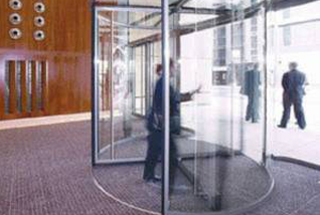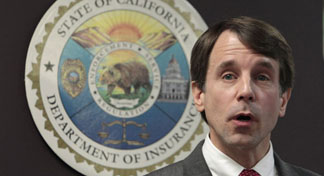California Bill Would Force Uber To Guard Passenger Privacy
by Carolyn Said, San Francisco Chronicle

A bill pending in Sacramento would force Uber, Lyft and other ride-hailing companies to follow stricter privacy rules. AB886 specifies that the smartphone-ordered ride services cannot disclose any data on passengers except to combat fraud or other crimes. It also says the companies must destroy all personal information when customers cancel their accounts. “We want to put the consumers in the driver’s seat about who owns their data and personal information, instead of having them take a back seat,” said bill author Assemblyman Ed Chau. Read More ›
AB 886 (Chau) Protects Uber Passenger Privacy
SACRAMENTO – Assembly Bill 886 (Chau, D-Monterey Park) will protect the sensitive personal information and credit card records of passengers using transportation network companies (TNCs) such as Uber. Read More ›
Report: Medical data breaches are rising, with no end in sight
by Victoria Colliver, San Francisco Chronicle

These health data attacks give hackers all the information they need to assume a patient’s identity, launch targeted “phishing” attacks, clean out bank accounts and commit crimes under the victim’s name, said Pam Dixon, executive director of the World Privacy Forum, an arm of a nonprofit public interest research group in San Diego County. “What we have found with working with victims of medical identity theft is that most don’t find out for about two years,” Dixon said. “The sophisticated criminals who are committing these crimes are waiting to act on the data so there is less risk of being caught.” Read More ›
California Privacy Advocates Urge Defeat Of Federal Data Breach Notice Bill
SACRAMENTO – Six California privacy and consumer groups have called on members of the US House Energy and Commerce Committee to oppose federal legislation that would wipe out California’s landmark data breach notification laws. The House Committee may hear the Data Security and Breach Notification Act of 2015 as early as Wednesday, April 15. California Congress members on the House committee are Lois Capps, Tony Cardenas, Anna Eshoo, Doris Matsui and Jerry McNerney. Privacy Rights Clearinghouse, Consumer Federation of California, Consumer Watchdog, World Privacy Forum, The Utility Reform Network (TURN), and Consumer Action are urging the members of Congress to defeat the proposed federal bill. – See more at: https://consumercal.org/california-privacy-advocates-urge-defeat-of-federal-data-breach-notice-bill/#sthash.gYAOYSz5.dpuf Read More ›
State Regulator Says PG&E May Be Too Big To Operate Safely
by Jaxon Van Derbeken, San Francisco Chronicle

In levying the $1.6 billion penalty for the San Bruno explosion, commissioners cited PG&E’s shoddy records, reckless practices and numerous safety violations leading up to the disaster. The 30-inch pipeline exploded when an incomplete seam weld that PG&E didn’t even know existed ruptured. Company records showed that the 1950s-era pipe had no seams, so PG&E never conducted the type of inspection that could have caught a flawed weld. Regulators found that PG&E had cut pipeline-safety spending during years when it was making record profits … Read More ›
AB 886’s Privacy Protections For Uber Passengers Held Up

Update 6/1/2015: The deadline for bills to advance from committees to the Floor passed last week, forestalling any realistic chance of reviving AB 886 this session. The bill was defeated in the Assembly Utilities and Commerce Committee April 20. Committee Chair Anthony Rendon and Assembly Members Roger Hernandez, Miguel Santiago and Das … Read More ›
AB 886 Would Protect The Privacy Of Uber Passengers

Assembly Member Chau has pulled AB 886 from consideration. He and Consumer Federation of California are considering promising alternative strategies to protect the privacy of passengers using Uber and other so-called transportation network companies. The sensitive personal data collected by Uber, for example, includes name, address, bank account information, travel logs, as well as personal address books and online search records that it pulls from passenger smartphones. It’s becoming alarmingly common for corporations to “mine” such data and share – or sell – it to other businesses. Read More ›
Stolen Uber User Logins Are For Sale On The Dark Web: Only $1 Each
by Robert Hackett, Fortune magazine

The information is being advertised for sale on the black market AlphaBay, a website that can only be accessed through the Tor browser, an anonymity-preserving network used by political dissidents, privacy-minded Internet users and criminals. One person using the alias “Courvoisier” claims to have “thousands” of “hacked accounts” for sale, each for as little as $1. Read More ›
Payday Loan Rules Proposed by Consumer Protection Agency
by Michael D. Shear and Jessica Silver-Greenberg, The New York Times

Even supporters of the consumer bureau’s mission were critical on Thursday, saying that the proposed payday lending rules do not go far enough. A chorus of consumer groups said that loopholes in the proposal could still leave millions of Americans vulnerable to the expensive loans. … An analysis of 15 million payday loans by the consumer bureau … found that few people who have tapped short-term loans can repay them. Borrowers took out a median of 10 loans during a 12-month span, the bureau said. More than 80 percent of loans were rolled over or renewed within a two-week period. Read More ›
Funds For Safety Went To Utility Execs’ Pay Instead, PUC President Says
by Marc Lifsher, Los Angeles Times

Money collected from ratepayers and earmarked for pipeline safety was instead spent on executive pay raises by the state’s largest utility, Pacific Gas & Electric Co., in the months before a deadly pipeline explosion in 2010, lawmakers were told Wednesday. … After the two-hour hearing, [new Public Utilities Commission President] Michael Picker told The Times that he’s gathering additional documentation that PG&E put off safety and maintenance work to boost its profits and provide top executives with bonuses. Read More ›
Credit Card Issuers Shouldn’t Bully Customers Into Arbitration Clauses
by David Lazarus, Los Angeles Times

[The Consumer Financial Protection Bureau] study found that as many as 80 million U.S. credit card customers are subject to arbitration clauses. The study showed that arbitration is much better for businesses than for consumers. Only 20% of cases resolved in consumers’ favor from 2010 to 2011 resulted in relief being paid, according to the study, while 93% of cases resolved in favor of companies led to payments. More strikingly, the study found that when consumers prevailed in arbitration, they were awarded an average of 57 cents for every dollar claimed. But when companies prevailed, they received 98 cents on the dollar. Read More ›
PUC Critics Cite Concerns Over ‘Revolving Door’
by George Avalos, San Jose Mercury News

[Michael] Peevey, who served as a PUC commissioner and president for 12 years, is seen by the agency’s sharpest critics as the poster child for the damage caused by the revolving door. He came to the PUC after working as president of Southern California Edison, which provides electricity for 14 million customers and is regulated by the PUC. … The exchange of jobs between the PUC and utilities extends to staff as well as commissioners. Tens of thousands of emails released starting last year and extending into January show many instances of PUC staffers working with PG&E executives in a cozy fashion. Read More ›
Why Did It Take 7 Months To Learn Blue Shield Lost Tax-Exempt Status?
by Chad Terhune, Los Angeles Times

California Insurance Commissioner Dave Jones on Wednesday applauded the [California Franchise Tax Board’s] move as further proof that “Blue Shield charges excessive rates and acts like a for-profit insurer.” Now consumer groups are asking for legislative hearings into the tax board’s handling of the Blue Shield matter. … State Sen. Ed Hernandez (D-West Covina), Senate Health Committee chairman, said he too wanted more answers from the franchise tax board and welcomes a debate over whether Blue Shield is meeting its obligations to taxpayers. Read More ›